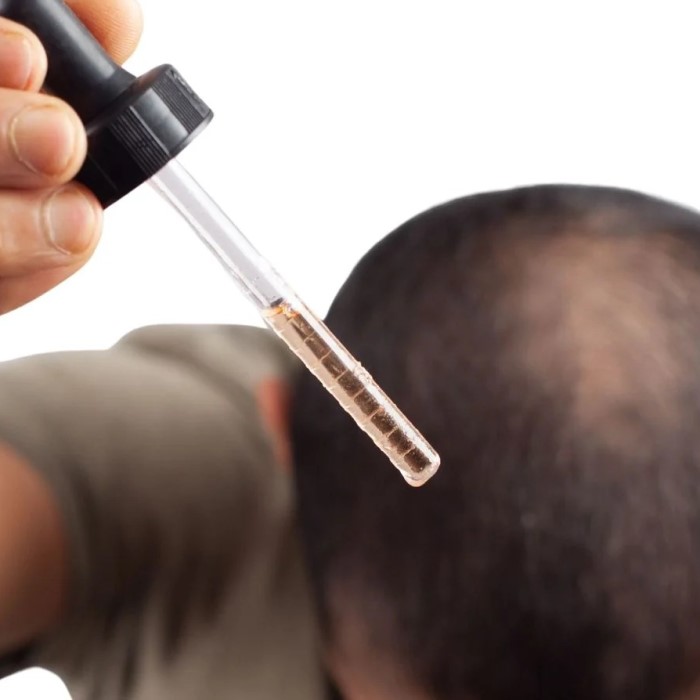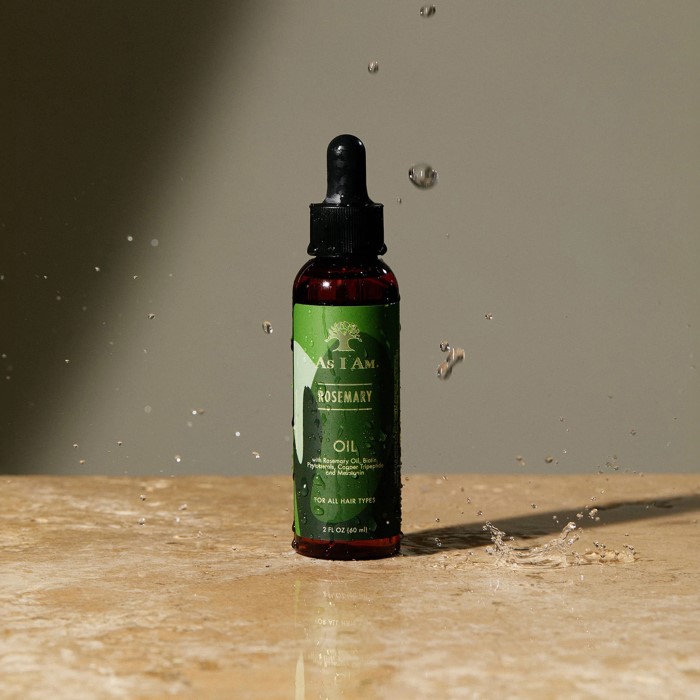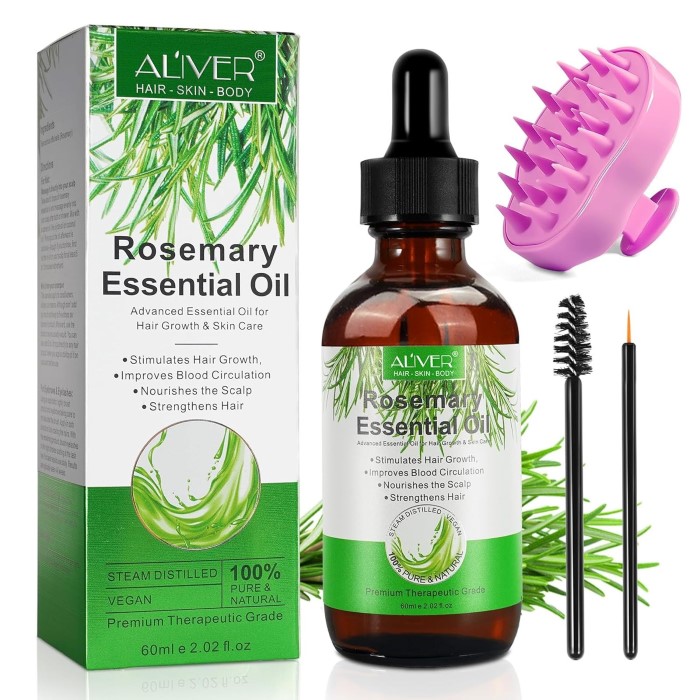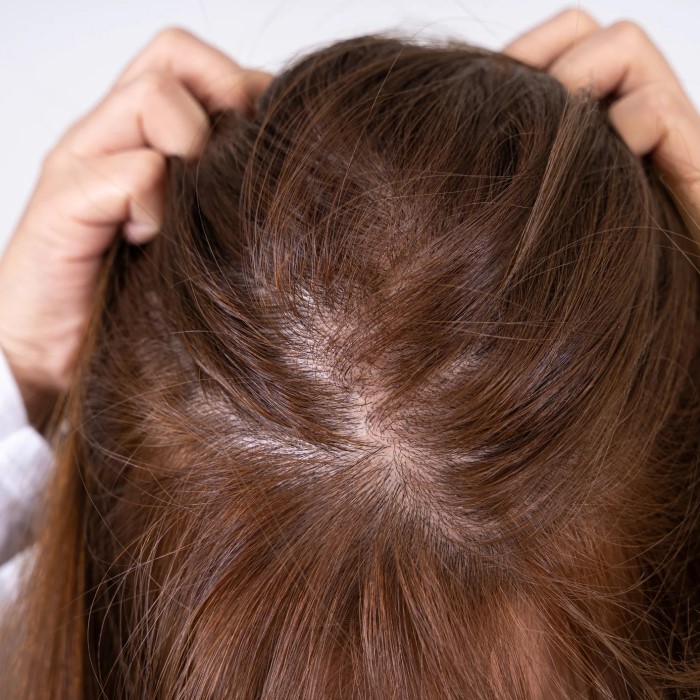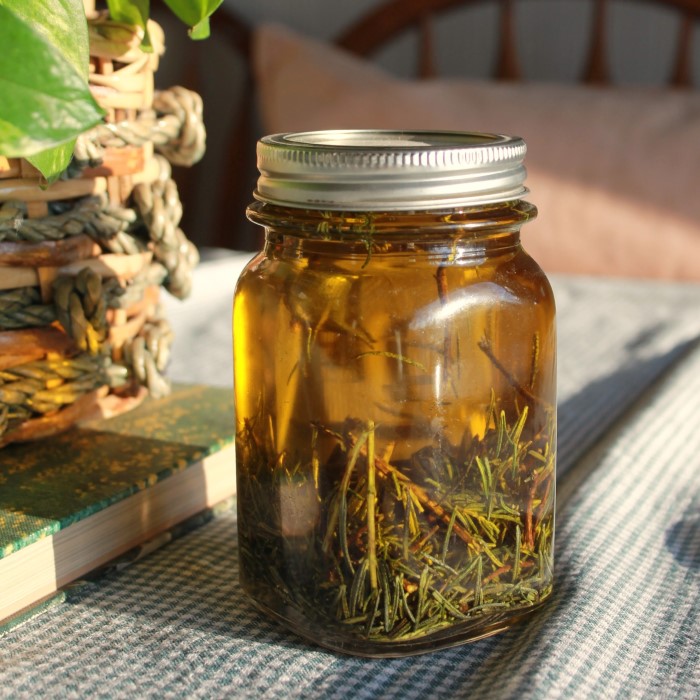
Can Rosemary Oil Cause Hair Loss? Myths vs. Facts Explored
Introduction: The Buzz Around Rosemary Oil
The beauty and wellness industry has recently seen a surge in the popularity of natural products. Among these, rosemary oil stands out for its purported hair health benefits. However, many people remain skeptical and often ask, can rosemary oil cause hair loss? Understanding the facts behind this question is crucial for anyone looking to improve their hair care routine. In this article, we will separate myths from facts, examine scientific research, and explore the benefits of rosemary oil for hair health.
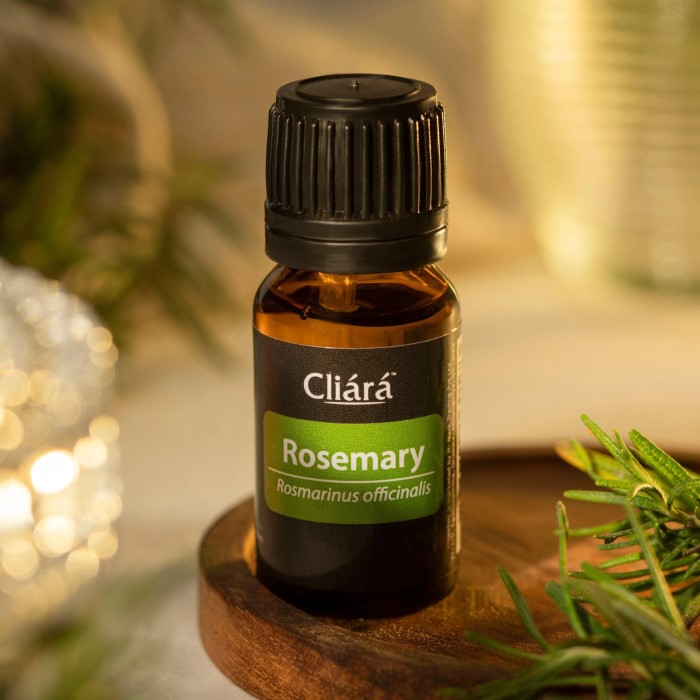
What is Rosemary Oil?
Rosemary oil is an essential oil derived from the aromatic herb rosemary. This herb, scientifically known as Rosmarinus officinalis, belongs to the mint family. Rosemary oil is extracted through steam distillation, capturing its essence and benefits.
Historical uses and benefits
Rosemary oil has been used for centuries for its medicinal and aromatic properties. Ancient Greeks, Romans, and Egyptians valued rosemary for its therapeutic effects. In traditional medicine, it was used to improve memory, relieve muscle pain, and boost the immune system.
Rosemary is rich in antioxidants, which help combat free radicals and reduce oxidative stress. Its anti-inflammatory properties can soothe sore muscles and irritated skin. Many people also use rosemary oil for its ability to reduce stress and improve concentration with its refreshing scent.
Common applications in hair care
Rosemary oil is widely popular in hair care routines. Its stimulating properties are believed to promote hair growth by improving blood circulation to the scalp. Many shampoos, conditioners, and hair treatments include rosemary oil as a key ingredient.
It is also used to fight dandruff and reduce scalp irritation due to its antimicrobial and anti-inflammatory effects. Some people apply diluted rosemary oil directly to their scalp to strengthen hair and prevent premature graying. As a natural remedy, rosemary oil remains a trusted choice for improving hair and scalp health.
How Rosemary Oil Affects Hair Health
Promoting hair growth
Rosemary oil is widely known as a natural remedy to encourage hair growth. One key way it achieves this is by stimulating blood circulation in the scalp. When applied, the essential oil helps deliver oxygen and nutrients to the hair follicles. Healthy follicles are crucial for growing strong and thick hair.
This oil contains natural compounds like ursolic acid and rosmarinic acid. These compounds promote hair growth by reducing inflammation in the scalp and strengthening hair roots. Rosemary oil may help prevent hair thinning and delay hair loss caused by aging or hormonal changes.
Some studies suggest that rosemary oil can block the effects of DHT, a hormone linked to hair loss. By preventing DHT from causing follicle shrinkage, rosemary oil supports fuller hair growth. Regular use of diluted rosemary oil may lead to visible improvements over time.
Potential risks and side effects
While rosemary oil offers several benefits, it is not entirely risk-free. Some people might experience mild irritation or sensitivity when applying it. If you have a sensitive scalp, conduct a patch test before full application to avoid any adverse reaction.
Overuse of rosemary oil can lead to scalp dryness or redness. Using the oil without diluting it properly may trigger discomfort or even worsen scalp conditions. It is advisable to mix it with a carrier oil like coconut or almond oil before use.
Certain individuals might develop allergic reactions to rosemary oil. Symptoms could include itchiness, redness, or swelling. Pregnant women, nursing mothers, and individuals with epilepsy should consult their healthcare provider before using rosemary oil.
To maximize benefits and avoid side effects, always follow guidelines for safe use. Proper dilution and limited application frequency are key to promoting hair health without harm.
Can Rosemary Oil Cause Hair Loss?
Examining the myth
A common myth is that rosemary oil causes hair loss. Many people worry about this possibility. However, it is essential to separate facts from misconceptions. Rosemary oil is widely known for promoting hair health and growth, not causing hair shedding.
Hair loss could result from improper use of rosemary oil. For example, undiluted application can irritate the scalp. This irritation might lead to temporary hair loss in some sensitive individuals. Additionally, allergic reactions to rosemary oil might cause itchiness, redness, or swelling, affecting hair health.
It’s important to recognize that claims about rosemary oil causing hair loss often lack scientific backing. Most issues arise from personal sensitivities or overuse rather than the oil itself. With proper use, rosemary oil is generally safe and beneficial for most people.
Scientific evidence and research findings
Scientific studies suggest rosemary oil supports hair growth instead of triggering hair loss. Research indicates that rosemary oil improves scalp blood circulation, which is essential for strong hair follicles. Strong hair follicles contribute to thicker, healthier hair over time.
One significant study compared rosemary oil with minoxidil, a common hair growth treatment. Over several months, participants using rosemary oil showed similar growth outcomes as those using minoxidil. This demonstrates rosemary oil’s potential as a natural solution for hair care.
Another study found that rosemary oil helps block DHT, a hormone linked to hair loss conditions like male-pattern baldness. By preventing DHT-related damage, rosemary oil promotes fuller and healthier hair.
Existing evidence does not support claims that rosemary oil causes hair loss. When used correctly, it can improve scalp health, reduce inflammation, and encourage thicker hair growth. Conducting patch tests and avoiding excessive application ensures safe use and effective results.
Potential Reasons for Negative Effects
While rosemary oil offers various benefits for hair, it may cause issues for some users. Understanding the potential reasons for negative effects can help ensure safe and effective use.
Allergic reactions
Some individuals may develop allergic reactions to rosemary oil. Symptoms can include itchiness, redness, and swelling of the scalp. These reactions are more likely if you have sensitive skin or existing allergies to related herbs, like mint or sage.
Before using rosemary oil, perform a patch test. Apply a small amount of diluted oil on your forearm, and wait for 24 hours. If irritation occurs, avoid using rosemary oil entirely. This precaution helps prevent unwanted sensitivity reactions on your scalp.
Overuse or improper application
Overusing rosemary oil without caution can lead to adverse effects. Undiluted application may irritate the scalp, causing dryness, redness, or even temporary hair shedding. It is essential to mix rosemary oil with a carrier oil like coconut or almond oil. This ensures that the application is gentle and safe.
Applying too much rosemary oil or using it excessively can also harm your scalp health. Overuse could lead to a buildup on the scalp, blocking hair follicles. This can disrupt hair growth and potentially worsen existing scalp issues.
Furthermore, applying rosemary oil too often might make your scalp resistant to its benefits. Use it in moderation, following recommended guidelines, to avoid damaging your scalp and hair.
By recognizing these potential reasons for negative effects, users can take preventive measures. Proper testing, dilution, and controlled application are key to enjoying the benefits of rosemary oil without harm.
How to Use Rosemary Oil Safely for Hair
Can rosemary oil cause hair loss? Using rosemary oil correctly can help you maximize its benefits and prevent potential issues. Following proper guidelines ensures that your scalp and hair remain healthy while enjoying this natural remedy’s advantages.
Recommended dilution and application methods
- Dilute the oil: Always dilute rosemary oil with a carrier oil, such as coconut, olive, or jojoba oil. Use 3-5 drops of rosemary oil for every tablespoon of carrier oil.
- Patch test: Conduct a patch test before applying. Apply a small amount of diluted oil to your skin and wait for 24 hours. If there is no irritation, it is safe to use on your scalp.
- Apply directly to the scalp: Massage the diluted mixture gently into the scalp. Focus on areas where hair is thinning or where growth is desired.
- Leave it on: Allow the oil to rest on your scalp for 30 minutes to an hour. This enables it to absorb and promote blood circulation.
- Rinse thoroughly: Wash your hair with a gentle shampoo to remove the oil. Ensure no residue remains to prevent buildup.
- Use as an additive: Add a few drops of rosemary oil to your shampoo or conditioner for easier application. Mix well before use.
Frequency of use for optimal results
- Start gradually: Begin by applying the oil 1-2 times per week to allow your scalp to adjust.
- Increase to 3 times weekly: For better results, apply rosemary oil about three times a week, depending on your scalp’s tolerance.
- Do not overapply: Avoid using rosemary oil daily as overuse can irritate or dry out your scalp.
- Consistency is key: Regular use is essential for noticeable results. Be patient, as benefits may take weeks to show.
- Adjust as needed: Depending on your hair and scalp response, you might need to modify the usage frequency.
By following these recommended practices, you can safely incorporate rosemary oil into your hair care routine. Its regular and proper application enhances scalp health and encourages robust and healthier hair growth.
Alternative Natural Oils for Hair Growth
Can rosemary oil cause hair loss? Using natural oils for hair care can promote growth and improve scalp health. Besides rosemary oil, several other natural oils offer significant benefits for hair growth. Each oil has unique properties suitable for different hair types and concerns.
Comparing rosemary oil with other oils
- Coconut Oil: Renowned for its deep conditioning properties, coconut oil nourishes dry and damaged hair. It penetrates the hair shaft easily, preventing protein loss and reducing breakage.
- Argan Oil: Also known as “liquid gold,” argan oil is rich in vitamin E and antioxidants. This oil moisturizes, softens hair, and protects it from UV damage and heat styling.
- Castor Oil: High in ricinoleic acid, castor oil improves blood circulation to the scalp and fosters hair growth. Its antibacterial properties also help maintain scalp health.
- Tea Tree Oil: Well-known for its antimicrobial and antifungal properties, tea tree oil helps prevent dandruff. It removes scalp build-up and keeps hair follicles clear for healthier growth.
- Jojoba Oil: This oil is similar to the natural oils produced by the scalp. Jojoba oil hydrates without leaving a greasy residue and is suitable for oily hair types.
- Peppermint Oil: Much like rosemary oil, peppermint oil improves blood flow to hair follicles, stimulating growth. Its cooling effect also soothes irritated scalps.
Which oils work best for different hair types
- Dry Hair: Coconut oil and argan oil are ideal for hydration and moisturizing rough strands.
- Oily Hair: Jojoba oil balances the scalp’s natural oil production and prevents excessive greasiness.
- Thin or Fine Hair: Rosemary oil and peppermint oil are lightweight and stimulate growth without weighing hair down.
- Thick or Coarse Hair: Castor oil deeply conditions and strengthens thick hair, reducing breakage.
- Sensitive Scalp: Tea tree oil or light oils like jojoba oil prevent irritation and gently nurture the scalp.
Choosing the right oil is key for achieving healthier and stronger hair. Mixing oils or alternating them can enhance benefits depending on your specific needs. Rosemary oil, paired with complementary oils, can be an exceptional addition to any hair care routine.
Frequently Asked Questions
How long does it take for results to show?
Results from using rosemary oil for hair growth can vary based on individual factors, such as hair type, scalp health, and the frequency of use. Generally, noticeable improvement in hair growth may take around three to six months. Remember, consistent application is essential for achieving the desired outcome. Apply diluted rosemary oil regularly, at least two to three times a week, for the best results over time. Be patient and track your progress for a better understanding of its effects.
What should you do if you notice hair loss?
If you notice hair loss while using rosemary oil, take the following steps:
- Stop using the oil: Discontinue use immediately to prevent further potential issues.
- Check for allergies: Perform a patch test on your skin to identify any allergic reaction.
- Review your application method: Ensure you are diluting the oil correctly and not overusing it.
- Consult a healthcare professional: Seek advice from a dermatologist or trichologist to assess other possible causes of your hair loss.
- Switch to mild remedies: Use mild, hypoallergenic hair care products to soothe your scalp.
Proper guidance and safe application are crucial to avoid irritation and achieve healthy hair growth.
Conclusion: Final Thoughts on Rosemary Oil and Hair Loss
In summary, while questions about can rosemary oil cause hair loss? remain prevalent, the evidence suggests quite the opposite. When used correctly, rosemary oil is safe and beneficial for hair health. The myths surrounding its potential to cause hair loss often result from improper usage or misunderstandings. Instead, scientific studies support the notion that rosemary oil can enhance hair growth and overall scalp health.
Incorporating this essential oil into your hair care routine may provide valuable benefits. As with any product, remember to perform a patch test and consult with a healthcare professional if you experience any adverse reactions. By properly utilizing rosemary oil, you can reap its rewards without the fear of hair loss. Embrace the power of nature and consider adding rosemary oil to your regimen for a healthier mane!
By separating myths from facts, we can better understand how to effectively utilize rosemary oil for our hair. Explore the possibilities and enjoy the journey toward improved hair health today!
